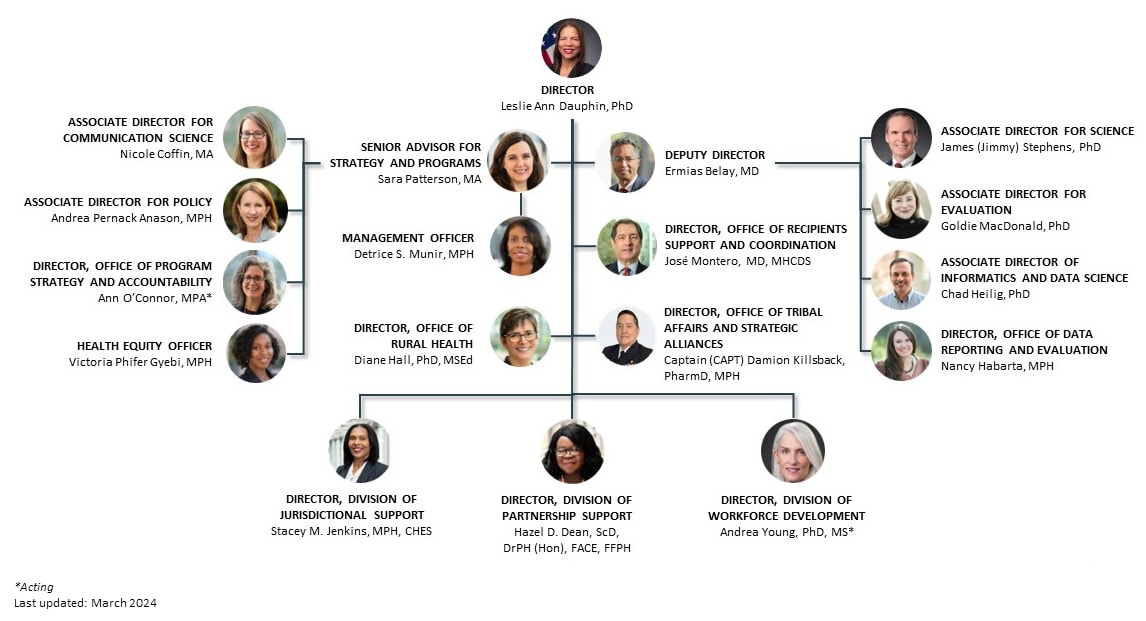Public Health Infrastructure Center Leadership
- Director, Leslie Ann Dauphin, PhD
- Deputy Director, Ermias Belay, MD
- Senior Advisor for Strategy and Programs, Sara Patterson, MA
- Director, Office of Recipients Support and Coordination, José T. Montero, MD, MHCDS
- Management Officer, Detrice S. Munir, MPH
- Director, Division of Jurisdictional Support, Stacey M. Jenkins, MPH, CHES
- Director, Division of Partnership Support, Hazel Dean, ScD, DrPH (Hon), FACE, FFPH
- Acting Director, Division of Workforce Development, Andrea Young, PhD, MS
- Associate Director for Communication Science, Nicole Coffin, MA
- Associate Director for Policy, Andrea Pernack Anason, MPH
- Acting Director of the Office of Program Strategy and Enterprise Accountability, Ann O’Connor, MPA
- Health Equity Officer, Victoria Phifer Gyebi, MPH
- Associate Director for Science, James “Jimmy” Stephens, PhD
- Associate Director for Evaluation, Goldie MacDonald, PhD
- Associate Director for Informatics and Data Science, Chad Heilig, PhD
- Director, Office of Data Reporting and Evaluation, Nancy Habarta, MPH
- Director, Office of Rural Health, Diane M. Hall, PhD, MSEd
- Director, Office of Tribal Affairs and Strategic Alliances, Captain (CAPT) Damion Killsback, PharmD, MPH
Biographies
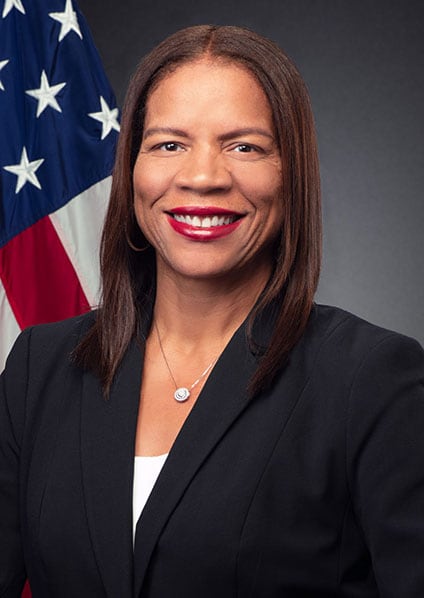
Leslie Ann Dauphin, PhD, is the Director of the National Center for State, Tribal, Local, and Territorial Public Health Infrastructure and Workforce at the U.S. Centers for Disease Control and Prevention (CDC).
The Public Health Infrastructure Center serves as the connection point between the agency and state, local, and territorial jurisdictions; Tribes; and CDC’s public health partners. The center ensures that our country’s public health infrastructure has the people, services, and systems needed to promote and protect health in every U.S. community (all 50 states, the U.S. Territories, Tribes, and freely associated states).
Prior to leading the public health infrastructure center, Dr. Dauphin served in a number of leadership roles across CDC. Most recently, she served as director of the Center for Surveillance, Epidemiology, and Laboratory Services. Dr. Dauphin’s leadership was instrumental to CDC’s response to laboratory safety events in 2014 and in the creation and successful stand up of the Office of Laboratory Science and Safety, where she served as deputy director. Previously, she served as acting Director for the Office of Science and Deputy Associate Director for Laboratory Science within the National Center for Emerging and Zoonotic Infectious Diseases. A trained laboratory scientist, Dr. Dauphin specialized in bioterrorism and emerging threats including anthrax as a research microbiologist and Response Team Coordinator for CDC’s 24/7 laboratory response to bioterrorism threats in the U.S. and abroad. Dr. Dauphin has also served in leadership roles on CDC’s COVID-19 response.
Dr. Dauphin received her doctoral degree in Microbiology from North Carolina State University. She is a veteran of the U.S. Army, where she was a paratrooper under the 18th Airborne Corps. She received the Southwest Asia Service Medal and the National Defense Service Medal for her service in Saudi Arabia during the first Gulf War, Operation Desert Storm.

Ermias Belay, MD, is the Deputy Director for the National Center for STLT Public Health Infrastructure and Workforce at the U.S. Centers for Disease Control and Prevention (CDC). In this role, he serves as the principal advisor to the Center Director and participates in senior leadership decisions affecting the center, including setting scientific and organizational priorities and strategies. Dr. Belay also oversees the functions of the Center’s offices for science, data reporting and evaluation, and informatics support.
Prior to joining the center, Dr. Belay served in various positions at CDC for over 25 years focusing on infectious diseases. In his many roles at CDC, he provided scientific leadership and oversight of research studies, outbreak investigations, and public health programs. Most recently, Dr. Belay served as Associate Director for Epidemiology and Global Health in the Division of High-Consequence Pathogens and Pathology (DHCPP), National Center for Emerging and Zoonotic Infectious Diseases (NCEZID). In this role, he coordinated the global health activities of DHCPP including programs and projects in many countries focusing on Ebola and other emerging hemorrhagic fever viruses, orthopoxviruses, rabies, brucellosis, anthrax, and other zoonotic pathogens. He provided epidemiology oversight across DHCPP, which consists of diverse programs ranging from bacterial and viral zoonotic diseases, infectious disease pathology, prion diseases, chronic fatigue syndrome, and emergency preparedness for several Tier 1 pathogens.
Dr. Belay has extensive experience leading scientific investigations and public health programs that have resulted in great benefit to public health. As a nationally and internationally recognized expert in prion diseases, Kawasaki disease, and global health, he has made substantial contributions to public health through more than 140 publications in scientific journals with outstanding scientific impact. Over the years, Dr. Belay has participated in many high-profile CDC emergency responses, including the current Mpox outbreak, COVID-19 pandemic response, Zika virus-associated Guillain-Barré syndrome in Colombia and Brazil, the 2014-2015 Ebola epidemic in Sierra Leone where he served as the country lead, the 2010-2011 Haiti cholera response, and the 2009 H1N1 influenza pandemic.
Dr. Belay received his medical degree from Addis Ababa University, and worked in family practice focusing on pediatrics before joining CDC’s Epidemic Intelligence Service (EIS) program. He was trained as an EIS Officer during 1994-1996.

Sara Patterson, MA, is the Senior Advisor for Strategy and Program for the National Center for STLT Public Health Infrastructure and Workforce at the U.S. Centers for Disease Control and Prevention (CDC). Sara oversees the health equity, policy, communications, and management and operations functions of the center. Sara leads the programmatic and partnership strategy for the center, working closely with the scientific functions to advance the center’s priorities and mission. The center is focused on building the foundational capabilities and workforce of the public health system. Sara led similar functions in CDC’s former Center for Surveillance, Epidemiology, and Laboratory Services (CSELS).
Prior to joining CSELS, Sara served as the Director of CDC’s Program Performance and Evaluation Office (PPEO), helping CDC programs and external partners achieve the greatest possible health impact by supporting programs with strategy, development of funding announcements, performance improvement, and program evaluation.
Sara also served as Deputy Chief of Staff for CDC on an interim basis, where she provided strategic advice to the Director and ensured proactive coordination of agency-wide priorities and policies in support of CDC’s mission.
Sara served as the Associate Director for Policy at CDC’s Injury Center where she oversaw policy and partnership activities to increase the visibility of injury as a critical public health issue and to reduce the burden of injuries and violence. She was with the Injury Center from 2007-2018, having originally joined the organization as the Deputy Director of the Office of Policy and Partnerships. Sara’s primary roles included overseeing congressional relations, managing cross cutting and strategic partnerships, and leading health policy efforts for the center.
Sara began her career at CDC in 2002 as a Presidential Management Fellow in the Financial Management Office (now Office of Financial Resources), focusing on congressional relations, budget and policy development, and performance management.
Prior to her arrival at CDC, she worked at Kids PEPP (Public Education and Policy Project) within the Ounce of Prevention Fund in Chicago, a state-level organization specializing in legislative and policy issues related to children ages 0-3. Sara also worked for the United Nations High Commissioner on Refugees, providing trauma counseling and case management services for refugees in Amman, Jordan.
Sara acquired her master’s in social work from the University of Chicago with a concentration in public policy and management. She holds a bachelor’s from Nebraska Wesleyan University in psychology and religion.
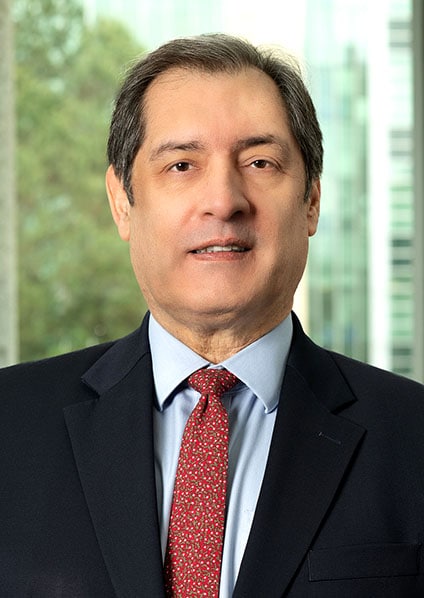
José T. Montero, MD, MHCDS, is the Director, Office of Recipients Support and Coordination in CDC’s National Center for STLT Public Health Infrastructure and Workforce. The center serves as CDC’s connection to health officials and leaders of public health agencies, as well as other government leaders who work with health departments.
Prior to joining the Public Health Infrastructure Center Dr. Montero served as the Director of CDC’s Center for State, Tribal, Local, and Territorial Support (CSTLTS). Under Dr. Montero’s leadership, CSTLTS worked to enhance public health systems to help state, tribal, local, and territorial public health agencies deliver high-quality services to the people and communities they serve. CSTLTS collaborated with partners to strengthen public health services; build a diverse, expert public health workforce; and promoted evidence-based practices. CSTLTS focused on addressing health disparities to advance health equity, joining with all of CDC to integrate health equity into the fabric of the agency’s work.
Before joining CDC, Dr. Montero served as vice president of population health and health system integration at Cheshire Medical Center/Dartmouth-Hitchcock Keene. Dr. Montero was the director of the Division of Public Health Services at the New Hampshire Department of Health and Human Services. In that role, he led the delivery of high-quality, evidence-based services and prompt response to public health threats and emerging issues in the state. Dr. Montero was credited with maintaining New Hampshire’s reputation as one of America’s healthiest states.
Dr. Montero has held many national and regional committee leadership positions, including serving as president of the board of directors of the Association of State and Territorial Health Officials. He has also served on the federal Advisory Committee on Immunization Practices, the National Academy for State Health Policy, the National Academies of Medicine, Sciences, and Engineering Roundtable on Population Health Improvement, Dartmouth Medical School’s Leadership Preventive Medicine Residency Advisory Committee, and the Foundation for Healthy Communities. He worked closely with CDC as a member of the board of scientific advisors for the Office of Infectious Diseases, as a member and then chair of the Social Determinants of Health Think Tank, a subgroup of the STLT Subcommittee to the Advisory Committee to the Director of CDC.
Dr. Montero holds a medical degree from the Universidad Nacional de Colombia. He specialized in family medicine and completed his residency at the Universidad del Valle in Cali, Colombia. He holds an epidemiology degree from Pontificia Universidad Javeriana in Bogotá, Colombia; received his certification of field epidemiology from the Colombia Field Epidemiology Training Program; and holds a Master of Healthcare Delivery Science from Dartmouth College.

Detrice S. Munir, MPH, is the Management Officer (MO) for the National Center for STLT Public Health Infrastructure and Workforce at the U.S. Centers for Disease Control and Prevention (CDC). In this role, she provides strategic leadership, management, and oversight of the center’s operations.
In 2019, Ms. Munir joined CDC’s Center for Surveillance, Epidemiology, and Laboratory Services as its Deputy Management Officer. In this role, she served as senior advisor to the CSELS OD MO leading strategy and planning, operational analysis and monitoring, and business process improvement activities. She later went on the be appointed as the MO for CSELS. Ms. Munir also provided leadership to the CSELS Business Management Operations Team, which consists of administration, extramural, program resource management, and quality assurance.
Prior to CSELS, Ms. Munir served as the Program Management Official (PMO) for the Division of State and Local Readiness (DSLR). In this role, she was responsible for planning, organizing, and directing the day-to-day financial management operations. Ms. Munir also previously served as the PMO for the Chronic Viral Disease Branch in the Division of High-Consequence Pathogens and Pathology (DHCPP) in the National Center for Zoonotic and Infectious Disease (NCEZID). In this role, she was responsible for managing administrative financial operations and tracking funds received from the Prevention and Public Health Fund (PPHF) and CDC Foundation to support programmatic activities related to human papillomavirus (HPV) and chronic fatigue syndrome (CFS).
Ms. Munir earned a Masters of Public Health degree in Health Policy and Management from Emory University’s Rollins School of Public Health and holds a Bachelor’s degree in Biological Sciences from Clark Atlanta University. Detrice has diverse experience in cross-cutting public health programs and has won multiple awards throughout her career for Excellence in Finance and Excellence in Procurement, Contracts, and Grants Management.

Stacey M. Jenkins, MPH, CHES, serves as the Director of the Division of Jurisdictional Support in CDC’s National Center for STLT Public Health Infrastructure and Workforce. Ms. Jenkins provides agency-wide support and coordination of public health partnerships. She leads a team of public health advisors and analysts in administering grants and umbrella cooperative agreements with state, tribal, local and territorial (STLT) jurisdictional health departments, working collaboratively across CDC to ensure CDC-funded public health partner contributions are integrated with and add value to CDC’s public health mission and activities.
Ms. Jenkins previously served as director of the Division of Program and Partnership Services within CDC’s Center for State, Tribal, Local, and Territorial Support (CSTLTS). In that roles she provided agency-wide support and coordination of public health partnerships; leading a team of public health advisors and analysts in administering seven funding mechanisms with State, Tribal, Local and Territorial public health partners, totaling over $3.5B; including the most recently awarded $2.25B CDC-RFA-OT21-2103: National Initiative to Address COVID-19 Health Disparities Among Populations at High-Risk and Underserved, Including Racial and Ethnic Minority Populations and Rural Communities. Prior to that she served as deputy director of the Division of Public Health Performance Improvement within CDC’s Office for State, Tribal, Local and Territorial Support, where she assisted the division director in providing guidance and strategic direction on a cross-agency system of performance and accountability that helped position state, tribal, local and territorial (STLT) public health agencies to achieve and advance the public health outcomes intended and supported by CDC. Ms. Jenkins has worked in the area of programmatic and strategic planning, and provided technical assistance to CDC-funded and non-funded partners for the past 21 years. She also served as CDC’s Adult and Older Adult goal team lead and held several leadership positions in the National Center for Chronic Disease Prevention and Health Promotion’s Divisions of Oral, Reproductive, and Adolescent and School Health.
Ms. Jenkins’s career began in 1992 as a research assistant with the Rollins School of Public Health at Emory University. Prior to coming to CDC, she held several public health positions in local, state, regional, private, and non-profit sectors. She was a senior relationship manager for WebMD, a program manager at the Emory University Regional Training Center, school health coordinator for Planned Parenthood of Georgia, and senior public health educator for the DeKalb County Board of Health.
Ms. Jenkins is an experienced public health professional with proven success leading and managing units, teams, and divisions. Her specific areas of expertise include leadership development and chronic disease prevention, which includes coordinated and comprehensive school health, reproductive health, sexual health, adolescent and women’s health. She is strongly committed to health promotion, disease prevention, and employee engagement.
Ms. Jenkins has an extensive background in managing budgets and developing health promotion and education programs and curricula for schools, community-based organizations, family planning centers, public health clinics, and universities.
She has a bachelor’s degree in psychology from the University of California at Berkeley, a master’s degree in public health, with an emphasis in behavioral science and health education, from the Rollins School of Public Health at Emory University, and she is a certified health education specialist.

Hazel D. Dean, ScD, DrPH (Hon), FACE, FFPH, is the Director for the Division of Partnership Support (DPS).
Dr. Dean served as the director of the Office of Equitable Population Health in CDC’s Office of Health Equity where she provided leadership in developing CDC’s long-range plans for populations that have been historically marginalized and underserved and who experience a disproportionate burden of premature death, preventable injury, and disease. She also served as the 25th Editor-in-Chief (EIC) of Public Health Reports (PHR), the journal of the Office of the Surgeon General and the US Public Health Service.
Dr. Dean served in many leadership roles with a distinguished record of service and achievements. From 2019—2023, Dr. Dean served as an Associate Director in PHIC and the former Center for Surveillance, Epidemiology and Laboratory Services. From 2006—2019, she was the Principal Deputy Director of the National Center for HIV, Viral Hepatitis, STD, and TB Prevention (NCHHSTP). Prior to this position, she was NCHHSTP’s first Associate Director for Health Disparities and Director of the Office of Health Disparities.
Dr. Dean has worked in public health at the state, federal, and international levels, and in nonprofit organizations. She has authored more than 150 peer-reviewed journal articles, policy reports, and other publications about infectious and chronic diseases, public health surveillance, applied epidemiologic methods, social and structural determinants of health, and public health workforce and leadership development.
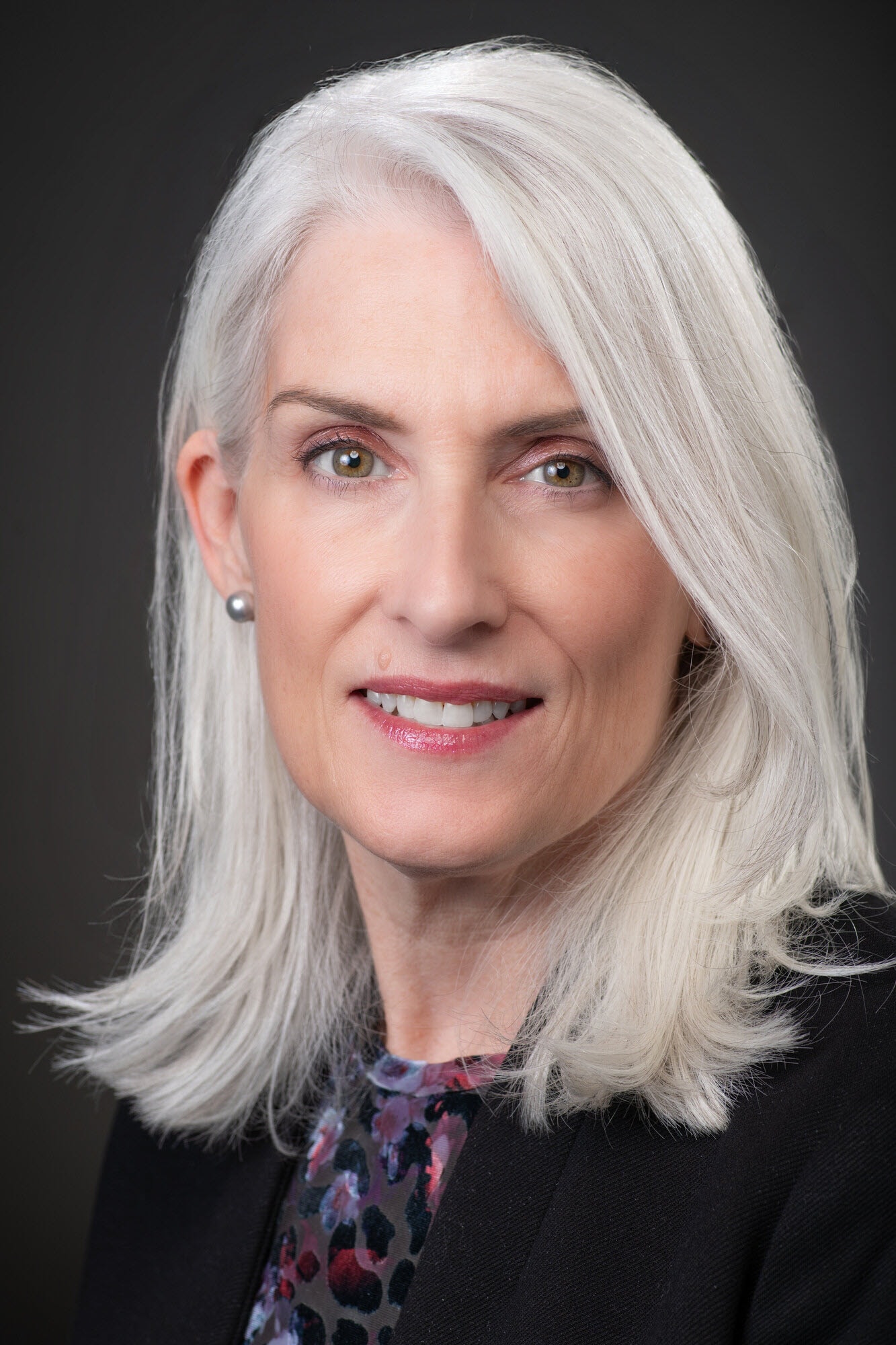
Andrea C. Young, PhD, is the Acting Director, Division of Workforce Development (DWD).
As DWD Acting Director, Andrea will direct and manage programs that develop the public health workforce. She will establish division goals and program priorities, lead and direct the planning, resource allocation, decision-making, management, implementation, and evaluation of all division activities, and develop and maintain partnerships with local and national organizations.
Prior to this role, Andrea served as the Deputy Director for Science for DWD. In this role, she focused on scientific integrity and quality, performance measurement and evaluation, workforce data and analytics, and information technology systems.
Andrea joined CDC in 2001, where she supported the planning, development, management, and evaluation of a variety of cross-cutting public health programs and initiatives. Previously at CDC, she served as the Associate Director for Science and Branch Chief for Applied Systems Research and Evaluation in the former Center for State, Tribal, Local and Territorial Support (CSTLTS); Director for the Division of Library Sciences and Services in the former CSELS; and Associate Director for Learning in the former Center for Preparedness and Response.
Andrea earned her doctorate and Master of Science degrees from the Department of Educational Psychology and Learning Systems at Florida State University, and a bachelor’s degree in Sociology from Eckerd College. Andrea has authored and coauthored presentations, chapters, and journal publications, and she received multiple CDC awards for excellence in science, evaluation, innovation, collaboration, and employee equity.

Nicole Coffin, MA, is the Associate Director for Communication Science for the National Center for State, Tribal, Local, and Territorial Public Health Infrastructure and Workforce at the U.S. Centers for Disease Control and Prevention (CDC). In this role, Nicole guides strategy and implementation of communication across the center to strengthen the nation’s public health infrastructure.
Since 1999, Nicole has led a variety of communication efforts across the CDC. Nicole has most recently been CDC’s Senior Advisor for Strategic Communications, Partnership, and Policy in the Division of Healthcare Quality Promotion. In that role she oversaw the strategic direction of the policy, partnership, and communications teams, ensuring consistent messaging and maximizing the interactions with CDC’s internal and external partners for CDC’s healthcare and patient safety portfolio.
In late 2022 and early 2023, Nicole was the Acting Deputy Director of Communications for CDC. During CDC’s COVID-19 Pandemic Response, Nicole served in many leadership positions, including as Deputy PDIM for the overall response. Her work focused on vaccine safety, infection control in healthcare settings, a rehaul of CDC’s community guidelines, and distribution of vaccines in nursing homes. Nicole has led policy and communications for CDC’s Antibiotic Resistance (AR) Coordination and Strategy Unit, including CDC communications for the White House Antibiotic Stewardship Forum, the launch of the National Action Plan to Combat Antibiotic Resistance, and CDC’s AR Solutions Budget Initiative.
She began her career in the CDC Office of the Director, Division of Media Relations, as a spokesperson for infectious diseases, bioterrorism, and chronic disease. Nicole is a media relations and crisis communications expert, playing a lead role in numerous national outbreak responses, including the post-9/11 Anthrax Attacks, emergence of West Nile virus in the U.S., SARS field teams, Ebola, and the Multi-State Outbreak of Fungal Meningitis due to contaminated steroid shots. Nicole holds a Master of Arts degree from the University of Alabama.
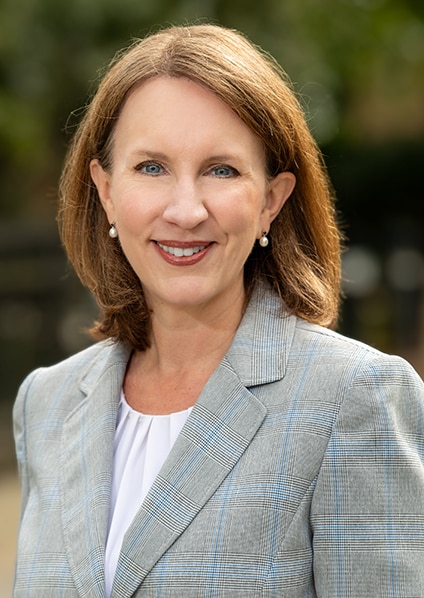
Andrea Pernack Anason, MPH, is as the Associate Director for Policy for the Public Health Infrastructure Center (PHIC) at the Centers for Disease Control and Prevention (CDC). Ms. Anason most recently served as the Deputy Associate Director for Policy and Strategic Partnerships Lead in PHIC. In this role, she led and coordinated external partner engagement opportunities to advance the center’s priorities. Prior to the 2023 CDC reorganization, Ms. Anason served in a similar role in CDC’s Center for Surveillance, Epidemiology, and Laboratory Services (CSELS).
Previously, Ms. Anason served as the Program Management Officer in the Division of Nutrition, Physical Activity, and Obesity (DNPAO) in the National Center for Chronic Disease Prevention and Health Promotion at CDC. In this role, she managed and oversaw the administrative and financial operations of the division and advanced DNPAO’s strategic priorities through program execution. Ms. Anason also served as the CDC Liaison to the CDC Foundation. She worked closely with CDC and CDC Foundation staff to advance partnership opportunities involving the CDC Foundation. She managed the CDC Conflict of Interest Review Panel for two years.
During her CDC career, Ms. Anason also served as the Associate Director for Policy in the Division of Scientific Education and Professional Development (DSEPD) in CSELS. She managed policy activities for DSEPD’s portfolio of public health workforce, fellowship, and training programs. In another policy role at CDC, Ms. Anason was the Deputy Associate Director for Policy in the Office of Public Health Preparedness and Response (OPHPR). She provided strategic and operational oversight of public health preparedness policy, planning, and evaluation activities at CDC. She served in a several policy roles in OPHPR over five years.
Prior to joining CDC, Ms. Anason was a program officer at the Institute of Medicine (IOM), now known as the National Academy of Medicine, where she served as the study director for the IOM committee that reviewed the Vaccine Safety Datalink data sharing program and was one of the lead program staff for the IOM committee that reviewed the national smallpox vaccination program. Ms. Anason worked in the Office of the Assistant Secretary for Planning and Evaluation (ASPE) at the U.S. Department of Health and Human services for several years prior to joining IOM. She came to ASPE through the Presidential Management Intern program (known today as the Presidential Management Fellows program).
Ms. Anason received her MPH in chronic disease epidemiology from the Yale School of Public Health and her B.A.in biological sciences with a concentration in evolutionary biology from Northwestern University. She enjoys traveling, cooking, and rooting for Detroit sports teams.

Ann O’Connor, MPA is the Acting Director of the Office of Program Strategy and Enterprise Accountability in the National Center for STLT Public Health Workforce and Infrastructure Center at the U.S. Centers for Disease Control and Prevention. The center ensures that our country’s public health infrastructure has the people, services, and systems needed to promote and protect health in every U.S. community.
Ms. O’Connor has over 30 years of federal government service as a leader dedicated to improving the Nation’s health and welfare through program stewardship and in strengthening the efficiency and effectiveness of programs in a variety of federal agencies. She has successfully mentored hundreds of professionals from diverse backgrounds, developed and implemented effective strategic plans, and ensured the success of major programmatic, policy, communication and evaluation efforts.
Ms. O’Connor held various positions at CDC including serving as the deputy director of the Division of Nutrition, Physical Activity and Obesity (DNPAO) in the National Center for Chronic Disease Prevention and Health Promotion where she provided strategic leadership to achieve high-impact public health outcomes of DNPAO investments. During COVID-19, she served for as a senior leader on multiple task forces. She led program strategy and advancement in the Associate Director for Program office including a major programmatic overhaul and standardization of CDC funding opportunities resulting in significant agency-wide human capital efficiencies, adoption of the standards for research, and significant efficiencies for applicants to ensure funds are invested in achieving high impact public health goals. Finally, she led policy and communications in the Coordinating Office for Terrorism Preparedness and Response where she led development of the first ever CDC preparedness reports on the state of public health readiness for public health emergencies showing improvements in capacities that received House and Senate Appropriations Committees’ commendations.
For 13 years prior to joining CDC, as part of the Office of Inspector General for the U.S. Department of Health and Human Services, Ms. O’Connor directed national policy and program evaluations on issues of national significance on the effectiveness and efficiency of programs for Congress, the Secretary and program leadership. She served in a similar role at the U.S. Department of Justice. Her work in the Offices of Inspector General resulted in the publication of over 30 government reports with tangible recommendations for decision makers to improve the efficiency and effectiveness of government operations in diverse program areas such as child support enforcement, foster care, food safety inspections, Medicaid, bioterrorism, immigration, and fugitive apprehension.

Victoria Phifer Gyebi, MPH, serves as Health Equity Officer for the National Center for STLT Public Health Infrastructure and Workforce at the Centers for Disease Control and Prevention. Victoria joined CDC in 2015 and has held a range of policy positions including serving as a member of the Center for Surveillance, Epidemiology, and Laboratory Services OD Policy Office from 2016 until she was named Health Equity Officer in 2021.
As the center’s Health Equity Officer, she is the principal advisor to the center Director and Deputy Director providing guidance, consultation, and evaluation of center activities to assure work across the center is planned, executed, and evaluated with consideration for social determinants of health and health equity. In collaboration with center leaders and programs, Victoria provided guidance to develop goals in support of CDC’s CORE Health Equity Science and Intervention Strategy. Victoria has championed approaches to integrate health equity principles in science, policy, and communication within the center and co-led the inaugural CSELS Health Equity Science Seminar Series. She is committed to increasing diversity, inclusion, and equitable advancement in STEM fields, including public health, as well as reducing health disparities.
Her previous leadership roles include supporting CDC’s COVID-19 Response as the policy lead for the Chief Health Equity Officer (CHEO) Unit and the Data, Analytics and Visualization Task Force. She supported key functions of the CSELS OD Policy Office related to legislative affairs, partnerships, and strategy.
Victoria entered federal public service in the CDC Washington Office as a Presidential Management Fellow. A native of Toledo, OH, Victoria earned her Master of Public Health degree from Emory’s Rollins School of Public Health, with a concentration in health policy and a certificate in Sociocontexutal Determinants of Health and holds a B.S. degree from Howard University.

James “Jimmy” Stephens, PhD, is the Associate Director for Science (ADS) for the National Center for STLT Public Health Infrastructure and Workforce at the Centers for Disease Control and Prevention. Jimmy is responsible for working with the center’s ADS and science professionals networks to ensure the quality and integrity of all scientific work. Jimmy led similar functions in CDC’s former Center for Surveillance, Epidemiology, and Laboratory Services (CSELS).
Jimmy joined CDC in 1992 as a research chemist at the National Institute for Occupational Safety and Health (NIOSH) in Morgantown, West Virginia where he studied the physicochemical properties of respirable particles and fibers. He also developed new techniques for visualization of highly complex data sets. In 1999, he became a Senior Scientist in NIOSH’s Office of the Director in Atlanta, and in 2004 he was appointed as the NIOSH Associate Director for Science.
In 2006 Jimmy was named as the Acting Associate Director for Science for CDC within the Office of the Chief Science Officer, a role he assumed officially in 2007. In 2010, he became the Director of the Office of Science Quality (OSQ) within the newly formed Office of the Associate Director for Science. In these roles, he served as an advisor on CDC scientific issues and as the chair of the CDC Excellence in Science Committee. He also served as a scientific liaison between MMWR and the CDC Office of the Director, and he helped to develop new standards for guidelines development at CDC.
In 2013 Jimmy was appointed as the Deputy Director of the National Center for Injury Prevention and Control. He then joined the National Center for Environmental Health / Agency for Toxic Substances and Disease Registry (NCEH/ATSDR) in January, 2014, and served in multiple roles include Acting Deputy Director of NCEH/ATSDR, Acting Director of the ATSDR Division of Community Health Investigations, and Director of the ATSDR Division of Toxicology and Human Health Sciences.
Jimmy graduated from the University of Georgia with a Bachelor of Science degree in chemistry in 1984. He earned his PhD in chemistry from Rice University in Houston, Texas, studying under Nobel Laureate Robert F. Curl, Jr.
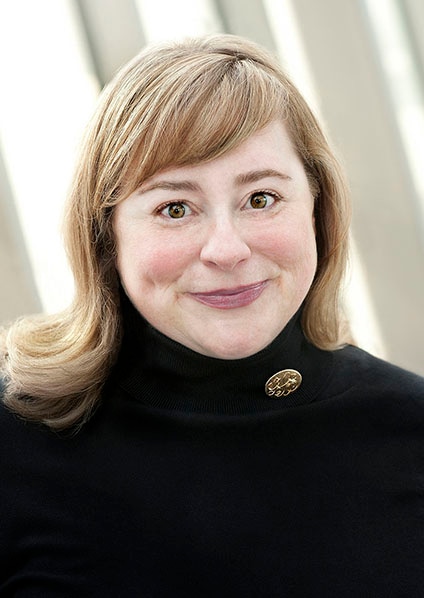
Goldie MacDonald, PhD, serves as the Associate Director for Evaluation in the National Center for STLT Public Health Infrastructure and Workforce at the Centers for Disease Control and Prevention. Goldie works closely with internal and external collaborators to advance program evaluation design, implementation, and use across the center and agency. She led similar functions in CDC’s former Center for Surveillance, Epidemiology, and Laboratory Services (CSELS).
She provides leadership and trusted counsel on evaluation of key programs nationwide and internal to CDC. Recently, for example, she led or co-led evaluation of electronic case reporting (eCR) in jurisdictions supported by Digital Bridge; formative evaluation of employee perspectives and priorities regarding diversity, equity, inclusion, and accessibility in CSELS; process evaluation of the National Neurological Conditions Surveillance System (NNCSS); capabilities-based evaluation to support the Public Health Data Modernization Initiative (DMI); equity-focused evaluation of eCR in Florida; and real-time evaluation of employee experiences and needs as CDC establishes the National Center for STLT Public Health Infrastructure and Workforce.
She is an active member of the Joint Committee on Standards for Educational Evaluation (JCSEE), the official source for program evaluation standards in North America. Since coming to CDC in 1999, Goldie co-led multisite evaluations of pandemic influenza preparedness in 40 countries, Field Epidemiology Training Programs in 10 countries, Steps to a HealthierUS program in 42 communities nationwide; and Integrated Disease Surveillance and Response across Ethiopia. For more than a decade, she taught evaluation theory and practice at regional events in Africa, the Americas, and Asia. Dr. MacDonald is lead author of Introduction to Program Evaluation for Comprehensive Tobacco Control Programs; the American Evaluation Association (AEA) recognized this work with the Alva and Gunnar Myrdal Award for Government. Dr. MacDonald is a regular contributor to AEA365 and authored three peer-reviewed evaluation checklists released by The Evaluation Center at Western Michigan University.

Chad Heilig, PhD, serves as the Associate Director for Informatics. As the Associate Director, Chad will work to integrate science, data, information, and technology in support of the center’s strategic public health informatics and data modernization initiatives. Chad believes that everyone who wants to do good things with data should have the support to do so.
Prior to this role, Chad was the Associate Director for Data Science within the Center for Surveillance, Epidemiology, and Laboratory Services (CSELS) since January 2015. In this role, Chad applied and integrated data sciences into public health practice and research to better serve the CDC science community around data and surveillance issues. During his time in CSELS, Chad supported the CDC Surveillance Strategy, ensured ethical stewardship of our many data repositories, and promoted efforts to analyze, interpret, and present evidence from data. Chad came to CSELS from the Division of Tuberculosis Elimination (DTBE), where he led planning and integration of data sciences within DTBE, mentored students and fellows in data sciences, and spearheaded Tuberculosis Trials Consortium efforts to strengthen the design, analysis, inference, and interpretation of clinical trials for treating latent and active tuberculosis.
Chad has also worked within the Office of Science (formerly the Office of the Chief Science Officer) on research ethics and human subject research protections and with the Division of Reproductive Health on issues around the health of women with or at risk for HIV. Chad holds a Ph.D. in Statistics from the University of California, Berkeley.
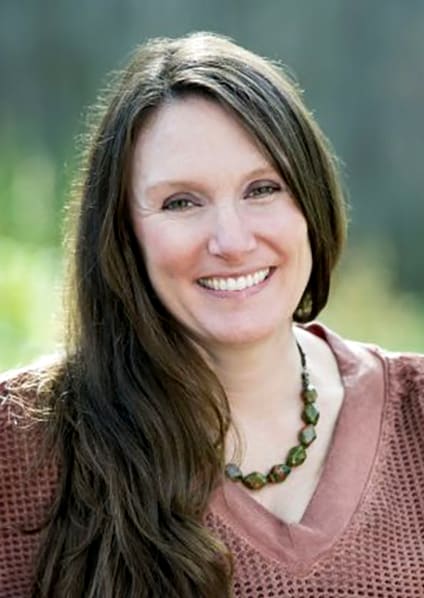
Nancy Habarta, MPH, serves as the Director, Office of Data Reporting and Evaluation in the National Center for STLT Public Health Infrastructure and Workforce at the Centers for Disease Control and Prevention. As director, Ms. Habarta leads the direction of agency-wide evaluation efforts to assess the effectiveness of CDC services and support to STLT health departments and other public health organizations, and inform the agency’s continuous improvement efforts for greater efficiency, effectiveness, and health outcomes. She also guides innovative measurement and implementation science efforts to contribute to the evidence of what works to improve the public health system.
Before joining the Public Health Infrastructure Center, Ms. Habarta served as chief of the Performance Development, Evaluation, and Training Branch in the Division of Performance Improvement and Field Services, Center for State, Tribal, Local, and Territorial Support (CSTLTS). Previously, she served as the associate director for evaluation for the Division of Public Health Information Dissemination (DPHID) within CDC’s Center for Surveillance, Epidemiology, and Laboratory Services. In that role, she directed evaluation activities for the Office of the Director and DPHID’s programs, including MMWR, Vital Signs, the Stephen B. Thacker Library, The Guide to Community Preventive Services, and the Office of Public Health Genomics. She developed systems to provide oversight of performance monitoring, strategic planning, and technical evaluation activities to demonstrate public health impact and value.
Ms. Habarta began her federal service as a Peace Corps volunteer in Zimbabwe in 1998 and began her career at CDC at The Guide to Community Preventive Services, performing systematic reviews on worksite health promotion and cancer-related interventions to determine the effectiveness of population-based public health interventions. She then served as part of the monitoring and evaluation team in the Global AIDS Program to build capacity for monitoring and evaluation within focus countries, develop the President’s Emergency Plan for AIDS Relief indicators, and conduct evaluation activities in multiple countries. Ms. Habarta then worked within the Division of HIV/AIDS Prevention at the National Center for HIV, Viral Hepatitis, STD, and TB Prevention, where she performed monitoring and evaluation activities and quantitative data analyses with national-level HIV counselling and testing data.
Ms. Habarta earned her undergraduate degree in psychology from Brandeis University and her master of public health degree in international health from Emory University.
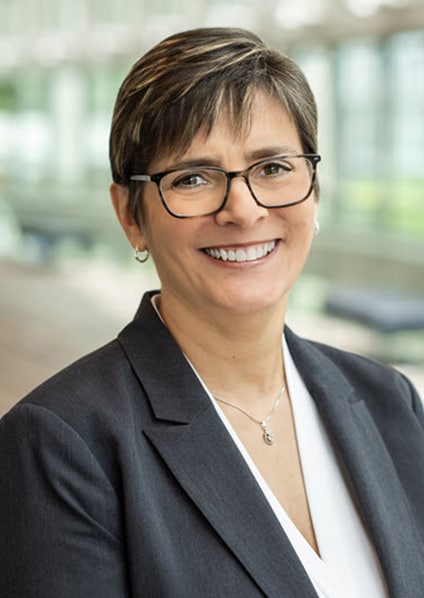
Diane M. Hall, PhD, MSEd, is the Director for the Office of Rural Health in CDC’s National Center for STLT Public Health Infrastructure and Workforce.
Prior to joining the Public Health Infrastructure Center, Dr. Hall was a senior health scientist in CDC’s Office of the Associate Director for Policy and Strategy (OADPS), where she led the office’s Strategic Engagement and Capacity Building work. She served as CDC’s rural health lead, led the agency’s public-private partnerships work, and oversaw training activities focused on using policy to improve the population’s health. As a recognized expert in knowledge synthesis and translation, Dr. Hall led the development of the office’s policy portal, POLARIS (Policy Analysis and Research Information System). Throughout the COVID-19 pandemic, Dr. Hall held several leaderships positions within CDC’s response.
Previously, Dr. Hall held several positions in CDC’s Division of Violence Prevention, where she worked on research related to the prevention of teen dating violence, intimate partner violence, sexual violence, and youth violence. She also served as lead of several translation products on Veto Violence.
Prior to coming to CDC, Diane held an academic appointment at the University of Pennsylvania, serving as the lead coordinator for a master’s program in psychology. She taught courses on theories of psychotherapy and counseling, psychology of women, and adolescent development.
Diane earned her B.A. in Psychology from Hollins College (now Hollins University) and earned her MSEd in psychological services and her PhD in school, community, and child clinical psychology from the University of Pennsylvania.
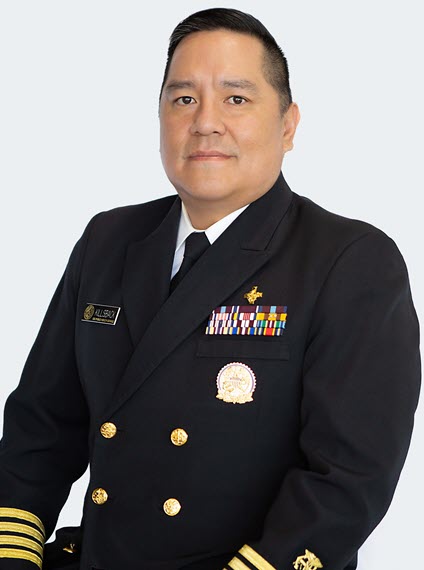
Captain (CAPT) Damion Killsback, PharmD, MPH, is the Director for the Office of Tribal Affairs and Strategic Alliances (OTASA).
In this role, he will continue the agency’s committed focus and supportive role working with American Indian/Alaska Native communities ensuring they receive public health services that keep them safe and healthy.
Damion has over 20 years’ experience in clinical pharmacy, public health, and administration, and work dedicated to AI/AN healthcare, health policy, and public health issues. Most recently, Damion served as the Chief Executive Officer for the Northern Cheyenne Service Unit in the Indian Health Service. His previous leadership roles include the HHS Office of Minority Health (OMH) acting director for the Division of Policy and Data and the AI/AN Policy Lead. He later became the Senior Advisor for Tribal Affairs and lead of the Tribal Affairs Team. There, Damion helped establish the Center for Indigenous Innovation and Health Equity Tribal Advisory Committee and served as OMH’s Tribal Liaison on all Tribal Affairs activities including the HHS Secretary’s Tribal Advisory Committee, the Interdepartmental Council on Native American Affairs, and the Missing Murdered Indigenous Persons Work Group.
Damion received his Doctor of Pharmacy Degree from the University of Montana and his Masters in Public Health from American Public University in Charles Town, West Virginia. He makes his home near his Northern Cheyenne Community as a proud member of the Northern Cheyenne Nation and a direct descendant of Chief Dull Knife. Damion is the oldest of six, and son of Jacqueline Limpy Tang. He is married to his beautiful wife and partner, Danelle Killsback, and they have four children: Daliyah (27), Konner (25), Kamden (10), and Hattie (8).
